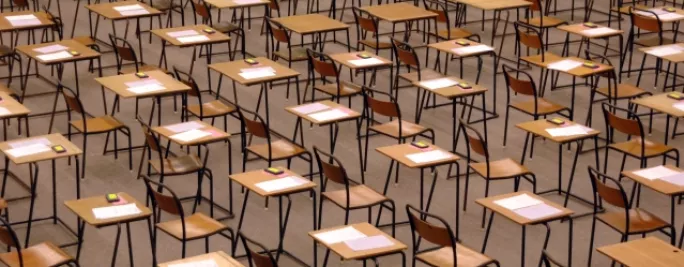IGCSEs would have encouraged ‘race to the bottom’, say ministers
IGCSEs will no longer count for school league tables because their inclusion would have encouraged a “race to the bottom”, ministers said today.
The Department for Education has announced that the qualifications will cease to be included in England’s performance measures as tougher reformed GCSEs come in from 2017.
Less than three years ago coalition ministers were actively encouraging state schools to move to IGCSE, a qualification traditionally favoured by the independent sector, as part of their campaign for greater “rigour”.
But a letter to exam boards from Nick Gibb, school reform minister, published today signals a complete about turn. He says he is “convinced” that allowing exam boards to develop IGCSEs, known officially as ‘level 1 / 2 certificates’, as alternatives to new GCSEs would “encourage a race to the bottom, with each board feeling obliged to produce less rigorous level 1 / 2 certificates rather than leaving the market to its competitors”.
“Such an eventuality would jeopardise the entire rationale for our GCSE reforms - namely to ensure that the exams that students take at 16 are high quality, rigorous and on a par with the best in the world,” the minister writes. “This is not an outcome I am prepared to risk or accept.”
Mr Gibb says the government had originally planned allowing exam boards to produce new IGCSEs so long as they were “at least as demanding” as England’s reformed domestic GCSEs and shared “key characteristics”.
But the minister says he was persuaded by Ofqual chief regulator, Glenys Stacey, during a meeting on Wednesday, that this would not work.
“Simply put, the regulator believes that the biggest market opportunity for awarding organisations would be to create level 1 / 2 certificates that are less demanding than new GCSEs,” his letter says.
It adds that the only way of preventing this from happening would be the “self-defeating” option of regulating the alternative qualifications as tightly as the reformed GCSEs.
Without that, including IGCSEs in league tables, “risks undermining the government’s national curriculum and could lead to a less demanding curriculum for some students”, Mr Gibb writes.
But Michael O’Sullivan, chief executive of Cambridge International Examinations, the board that first developed the IGCSE, believes there is another reason.
“I think the big concern from government has centred on one thing,” he told TES. “It is - ‘What if just as we reform GCSEs, more schools opt out of GCSEs and take something else instead?’ - and it would be very hard to spin that as anything other than the reform failing.”
He also argues that ensuring new IGCSEs that were comparable and as rigorous with the new GCSEs would have been “hard work” for Ofqual, but perfectly possible.
The reputation of IGCSEs as a “rigorous” alternative to GCSEs was tarnished by the summer of 2013 when TES revealed that many state schools were turning to the qualification because they regarded it as “super-easy”.
Today Brian Lightman, Association of School and College Leaders general secretary, said schools had already wasted time and effort because they believed IGCSEs would be included.
“It is disappointing that IGCSEs will again become an examination solely for the independent sector in the way ministers criticised previously,” he said “That could seriously undermine the government’s high ambitions for the reformed GCSEs.”
Related stories:
IGCSEs to be scrapped from league tables in exam overhaul July 1 2014
Schools turn to IGCSEs because they are “way easier” August 20 2013
Keep reading for just £1 per month
You've reached your limit of free articles this month. Subscribe for £1 per month for three months and get:
- Unlimited access to all Tes magazine content
- Exclusive subscriber-only stories
- Award-winning email newsletters




